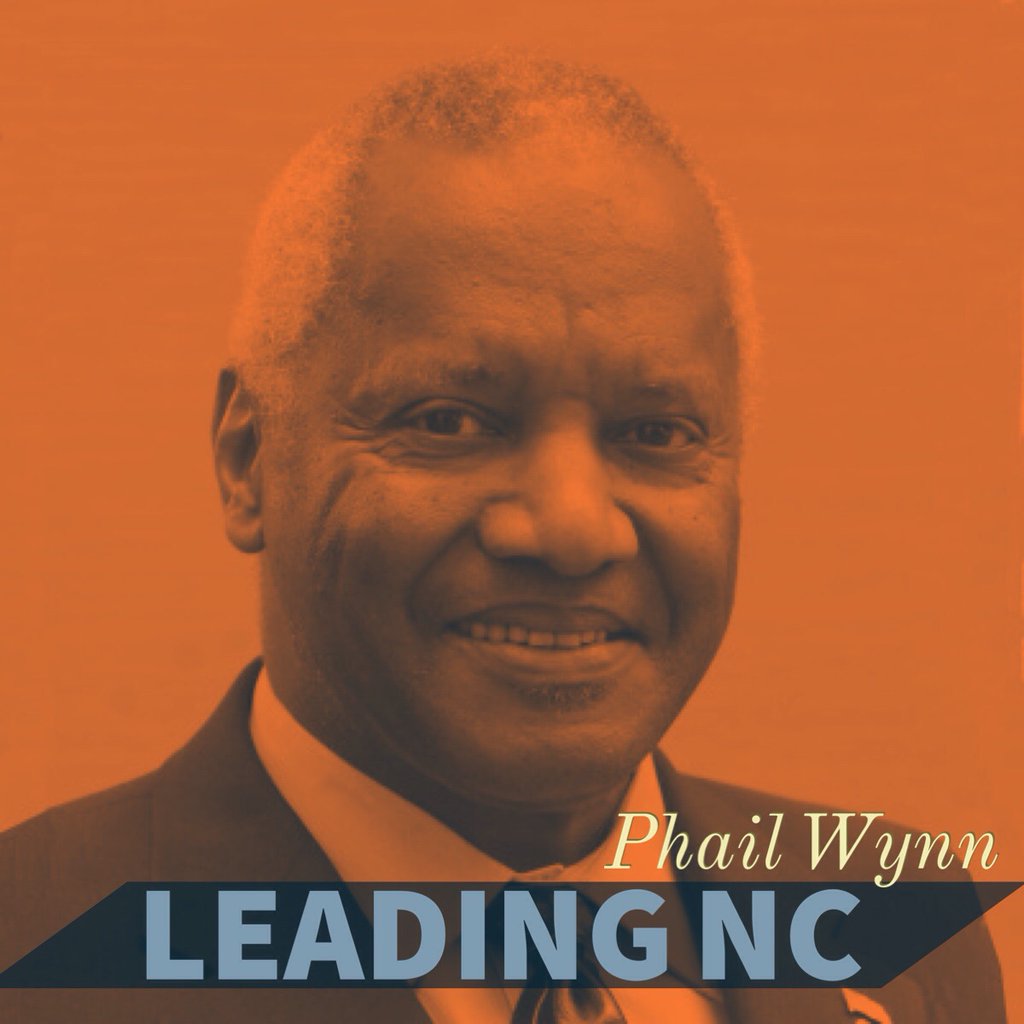
Leading North Carolina is regular series in which members of the Research Triangle Foundation’s Board of Directors are highlighted. Bridgette A. Lacy is currently interviewing each member of the board for the project, and we will be posting the profiles here. The goal is to give readers an insider’s perspective into the people helping to guide the future of RTP – and North Carolina. Each board member has a unique background that effects their perspective on how we should redevelop RTP in order to be better positioned for tomorrow’s workers. We are thankful for their time, their wisdom and their willingness to continue working with our team on this journey.
Phail Wynn Jr. is a regional historian and community collaborator. He is the vice president for Durham and Regional Affairs at Duke University.
When he arrived at Duke in 2008, Phail was charged with expanding and deepening the partnerships between Duke and Durham. “I quickly became aware of the countless ties between Duke and its hometown that date to the days of Trinity College,” says the former Army Special Forces officer and Vietnam veteran.
Phail talked with community leaders, school board members, city and county government and civic leaders to figure out how Duke could contribute to on-going efforts to make Durham a great place to live. “The priorities that emerged time and again were youth, K-12 education, and economic development,” he says.
These issues were some of the same ones that had Phail tackled as the president of Durham Technical Community College during his 28-year tenure there. In 1980, he became the first African American community college president in the North Carolina system.
Phail’s life experience as one of the first African American student-athletes at the University of Oklahoma, combat duty, and numerous advanced degrees made him the perfect man for the job.
“He leads by example,” says Steve Toler, the managing principal of his own strategic relations firm. The two met 30 years ago when Mr. Toler served on the Durham Tech Foundation Board. “He leads by his own personal character. People turn to him to help in leadership roles.”
“I can’t think of anyone with more insight than Phail Wynn Jr. into all the different aspects of our region,” Mr. Toler says. “He has a clear sense of where we need to go to continue to be competitive.”
During Phail’s tenure, Durham Tech provided the largest number of customized training programs for new and expanding industries in the state including that for companies in Research Triangle Park.
Long recognized as a community problem solver, Phail was elected to the Research Triangle Foundation Board in 1992.
As the Park shifts to serve the next generation of researchers and tech developers, Phail sees Duke’s role shifting. “The university has placed greater emphasis on entrepreneurship and innovation being woven throughout the undergraduate curriculum,” he says. “We want to entice more graduates to stay in the area…We want to provide opportunities for young researchers from Park firms and graduate students from Duke and NCCU to meet, network and cross pollinate ideas with others in the Park.”
“NCCU has two real potential gems that are not fully developed,” says Phail, explaining that Biomedical/Biotechnology Research Institute (BBRI) and Biomanufacturing Research Institute and Technology Enterprise (BRITE) are two very attractive research enterprises. NCCU Chancellor Dr. Debra Saunders-White is focused on developing those ventures.
For decades, Phail has been focused on getting young people ready for a competitive and constantly changing work environment. He has a master’s and doctorate in psychology from North Carolina State University; and a master’s in business administration from the University of North Carolina at Chapel Hill.
He has experience in working with employers to retrain workers who lost jobs in the tobacco and textile industries because of new technology. He created training programs for workers transitioning from jobs in cigarette and furniture manufacturing to new positions ranging from optical fiber and semiconductor manufacturing to biosciences.
So many issues of workforce preparation center around early education and reading proficiency, keeping kids in school until graduation, and ensuring high school graduates are competent and ready to be trained, Phail explains. “One of the keys to workforce training and preparation is a workforce ready to be trained and retrained. They must be highly literate, mathematically competent, and able to grasp new concepts and put them into practice.”
Phail believes the market demands “high wage skills for high wage jobs.”
His prescription for the Park is to be a strong and supportive partner toward that goal. “Here in my position at Duke, I have tried to convene a community-wide meeting of stakeholders to develop a sustainable, collective-action approach to addressing these key educational issues. We need the support of the Park and the private sector in general to be a strong and supportive partner in efforts to build this community coalition to address these educational challenges once and for all.”